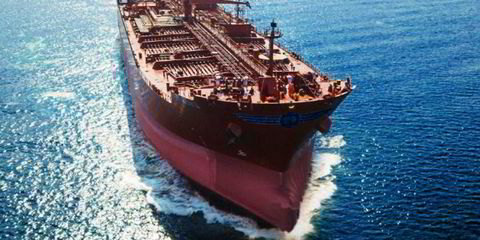Danish bunker and tanker group Monjasa has detailed five ways hot shipping markets and shifting trade flows amid geopolitical turmoil are changing the fuel supply sector.
According to internal research seen by TradeWinds, the group believes high price volatility in the wake of the Ukraine war is putting pressure on market players.
This all means added complexity in an industry that pumps an estimated 250m tonnes of fuel products onto vessels each year.
“Supplier flexibility is being put to the test by shifting regional trade patterns that are causing immediate changes to product sourcing and supply logistics,” the Danish company said.
Monjasa believes this has been good for bunker operations with a global reach and flexible upstream partnerships, as well as their own tanker fleets.
Credit access and liquidity face pressure, the company said.
The cost of very low sulphur fuel oil (VLSFO) has increased from an average of $482 per tonne in 2021 to $778 in 2022, according to Platts.
“With the marine fuels industry generally financing 30 days of credit across the shipping industry, this 61% price increase is favouring financially robust suppliers who are able to accommodate extended customer credit facilities,” Monjasa said.
“Moreover, the price hike has meant a significant liquidity squeeze and immediate cash demand for companies operating large oil inventories as part of their business model,” the company added.
Monjasa has also identified a rise in demand for forward contracts.
Record volatility
Year-to-date data reveals historically volatile oil price levels and VLSFO price fluctuations ranging from $554 to $1,039 per tonne.
This situation is increasing shipowners’ appetite for minimising their exposure by buying forward price contracts and demanding fixed delivery premiums, Monjasa said.
There are also last-minute route deviations for vessels in fast-changing commodity markets.
Suppliers have to accommodate new supply locations at short notice.
Finally, the highly dynamic sanctions-compliance landscape following Russia’s war in Ukraine is causing many headaches.
Bunker groups must screen all trading activities, including ships, ownership, cargo type and destinations, before supplying fuel.
“Ever-changing sanctions landscapes call for swift action to ensure compliant trading and supplies,” Monjasa said.
Quick action needed
Suppliers unable to evaluate single counterparties and offer consultancy within short time frames are becoming less attractive for clients affected, the group argues.
Monjasa is among the world’s 10 largest global marine fuel suppliers.
Chief operating officer Svend Stenberg Molholt told TradeWinds: “The rising global trade complexities bring new challenges and opportunities for marine fuel suppliers like Monjasa.”
“We believe these global trade disruptions favour companies whose operating model can readily adapt to changing and dynamic compliance landscapes. Moreover, the ability to provide flexible supply solutions at short notice is becoming an increasingly important factor for shippers around the world.”
The COO said controlling a fleet of 25 tankers and barges has contributed to an unforeseen high demand for its services in 2022, with total volumes up around 15% compared to the same period last year.







